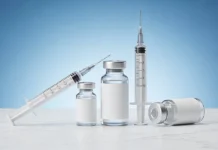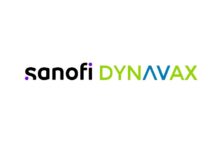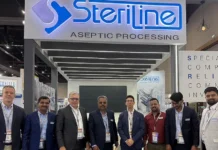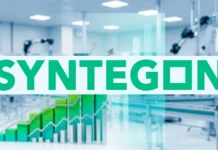Akili Interactive , an affiliate of PureTech Health (PRTC.L) announced top-line results from the Company’s STARS-ADHD pivotal study of its lead investigational digital medicine, AKL-T01, in paediatric attention-deficit/hyperactivity disorder (ADHD).
In a randomised, controlled trial of 348 children and adolescents diagnosed with ADHD, AKL-T01 showed a statistically significant improvement compared to an active control (p=0.006) on the predefined primary endpoint, a change in the Attention Performance Index (API), a composite score from the Test of Variables of Attention (T.O.V.A.®). The T.O.V.A.® is an objective measure of sustained attention and inhibitory control.
AKL-T01 was shown to be safe in this study, with no serious adverse events observed. Subjective secondary outcome measures showed statistically significant positive improvements in both the treatment and active control groups, though there was not a statistically significant separation on those measures between groups. Full analysis is underway and results of the study will be presented at an upcoming scientific conference and will be submitted for publication in a peer-reviewed journal. Based on the results of the study, Akili plans to file AKL-T01 with the U.S. Food and Drug Administration (FDA) for clearance as a novel treatment for children and adolescents with ADHD.
“This innovative study represents, to my knowledge, the largest and most rigorous evaluation of a digital medicine,” said Dr. Scott Kollins, Professor of Psychiatry, Director of the ADHD Program at Duke University School of Medicine and principal investigator for the study. “The objective improvements of attention observed in the study suggest that AKL-T01 addresses a key deficiency in ADHD that is not directly targeted by standard treatments. Since the active control group in this study also played an engaging video game, we are encouraged that the statistically significant group differences were driven by the therapeutically active component in AKL-T01 and not just the video game experience.”
ADHD is a neurodevelopmental disorder affecting approximately 11 percent of school-age children and is characterised by developmentally inappropriate cognitive function, with symptoms including inattention, impulsivity and hyperactivity. Pharmaceuticals are the standard of care for the treatment of paediatric ADHD. However, many children are inadequately managed on medication, including tolerability concerns, and additionally a significant number of parents choose not to treat their children with traditional pharmaceuticals.
“For children with ADHD, inattention can cause many challenges both at school and at home. A treatment that can reduce a child with ADHD’s inattention holds the promise of improving their lives,” said Dr. Robert L. Findling, Vice President, Psychiatry Services and Research, Kennedy Krieger Institute; Director, Child and Adolescent Psychiatry, Johns Hopkins University.
In the 20-site multi-centre, randomised controlled trial, the 348 children and adolescents with ADHD and objective attention deficits were evaluated before and after four weeks of at-home treatment with either AKL-T01 or an active control which was designed and tested to have a similar level of expectation of benefits and engagement. Children and adolescents receiving AKL-T01 showed a statistically significant improvement in attentional functioning on the Attention Performance Index (API), a composite, objective measurement of attention and the pre-defined primary endpoint of the study, compared to no improvement in the active control group (p = 0.006). AKL-T01 was safe and well-tolerated with only 11 treatment-related adverse events reported, primarily headache and frustration. No serious adverse events were reported and only one patient discontinued treatment. Both the treatment and active control group showed statistically significant improvement from baseline on a range of subjective behavioural secondary outcome measures. Differences between the groups on the secondary outcomes were not statistically significant. Full analysis of pre-specified secondary and exploratory outcomes is underway and the data will be presented in upcoming peer-reviewed publications and medical meetings.
“This is an exciting milestone for our company, for the digital therapeutic community, and for families and children affected by ADHD. We look forward to advancing AKL-T01 through our planned regulatory process and toward the market,” said Eddie Martucci, Ph.D., Akili’s President and CEO. “The study results further validate Akili’s technology platform as we continue to advance our pipeline of digital treatments targeting cognitive dysfunction in ADHD and other patient populations, and work toward our vision of re-defining medicine.”
About AKL-T01
AKL-T01, Akili’s ADHD treatment in development, is a first-of-its-kind prescription digital medicine being evaluated as a potential treatment for ADHD. Engineered as a therapeutically active treatment for cognitive deficiency in paediatric patients affected by ADHD, AKL-T01 is built on Akili’s proprietary, patented Project: EVO™ technology platform that enables selective targeting and activation of specific cognitive neural systems in the brain that exhibit deficiencies from various medical conditions. AKL-T01 uses adaptive algorithms to deliver the presentation of stimuli that engage targeted neural systems in the prefrontal cortex, the front part of the brain known to play a key role in cognitive control and known to be deficient in ADHD. In a closed-loop system, the adaptive algorithms automatically adjust the level – or dose – for a personalised treatment experience that is tailored to the needs of each individual patient. Rather than being administered through a pill, AKL-T01 is delivered through a creative and immersive action video game experience. The treatment looks and feels like a high-end video game, leveraging art, music, storytelling, and reward cycles to keep patients engaged and immersed for the delivery of therapeutic activity with excellent compliance. The science behind AKL-T01 was developed at the University of California, San Francisco by Adam Gazzaley, M.D., Ph.D., Founding Director of the University of California San Francisco’s Neuroscape and Akili’s Chief Science Advisor.
About STARS-ADHD Trial
The STARS-ADHD pivotal study of AKL-T01 was a multi-centre, randomised, double-blind, active-controlled study in 348 children ages 8-12 diagnosed with ADHD. Patients were randomised 1:1 to AKL-T01 or an active control. Both groups used the treatment/control at home on a tablet device for four weeks. The active control application was deployed in the same format as AKL-T01, a mobile tablet, and mimicked the reward and engagement of AKL-T01 but deployed different stimuli than the therapeutically-active component. After the four-week period, an in-clinic assessment measured changes from baseline on standard measures of attention, memory and impulsivity. The primary endpoint of the study was change in the Attention Performance Index (API), a composite score from the Test of Variables of Attention (T.O.V.A.®), an FDA-cleared continuous performance test measuring sustained attention and inhibitory control. Secondary outcomes included subjective parent-reported behavioural ratings. The study was managed by the Duke Clinical Research Institute.
About T.O.V.A.®
The Test of Variables of Attention (T.O.V.A.®) is an objective, accurate, and FDA-cleared continuous performance test (CPT) that measures the key components of attention and inhibitory control. The T.O.V.A.® is used by qualified healthcare professionals as an aid in the assessment of attention deficits, including attention-deficit/hyperactivity disorder (ADHD), in children and adults. The T.O.V.A.® calculates response time variability (consistency), response time (speed), commissions (impulsivity), and omissions (focus and vigilance). These calculations are then compared to a large age- and gender-matched normative sample, as well as to a sample population of individuals independently diagnosed with ADHD. The T.O.V.A.® provides information that is not available through self-report or the report of others. It is used along with a clinical interview and subjective measures (such as behaviour ratings) for a more comprehensive picture of academic, social, and personal performance and impairment.
About Akili
Akili Interactive Labs, Inc. is a prescription digital medicine company combining scientific and clinical rigour with the ingenuity of the tech industry to reinvent medicine. Akili is pioneering the development of digital treatments with direct therapeutic activity, delivered not through a pill but through a high-quality action video game experience. Akili is advancing a broad pipeline of programmes to treat cognitive deficiency and improve symptoms associated with medical conditions across neurology and psychiatry, including attention-deficit hyperactivity/ disorder (ADHD), major depressive disorder (MDD), autism spectrum disorder (ASD) and multiple sclerosis (MS) and various inflammatory diseases. Akili is also developing complementary and integrated clinical monitors and measurement-based care applications. The company was founded by and is an affiliate of PureTech Health (PRTC.L). For more information visit: www.akiliinteractive.com
About PureTech Health
PureTech Health (PureTech Health plc, PRTC.L) is an advanced, clinical-stage biopharmaceutical company developing novel medicines targeting serious diseases that result from dysfunctions in the nervous, immune, and gastrointestinal systems (brain-immune-gut or the “BIG” axis), which together represent the adaptive human systems. PureTech Health is at the forefront of understanding and addressing the biological processes and crosstalk associated with the BIG axis. By harnessing this emerging field of human biology, the Company is pioneering new categories of medicine with the potential to have great impact on people with serious diseases. PureTech Health is advancing a rich pipeline of innovative therapies that includes two pivotal stage programmes, multiple human proof-of-concept studies and a number of early clinical and pre-clinical programmes. PureTech’s rich research and development pipeline has been advanced in collaboration with some of the world’s leading scientific experts, who along with PureTech’s team of biopharma pioneers, entrepreneurs and seasoned Board, identify, invent, and clinically de-risk new medicines. With this experienced team pursuing cutting edge science, PureTech Health is building the biopharma company of the future focused on improving and extending the lives of people with serious disease. For more information, visit www.puretechhealth.com



















